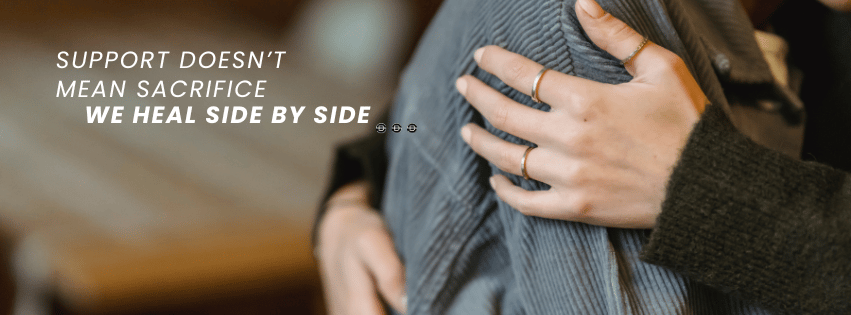- Sobriety Daily
- Posts
- Supporting Your Partner Through Sobriety
Supporting Your Partner Through Sobriety
Learn how to support your partner’s sobriety journey while maintaining your own well-being.

The Sobriety Daily Newsletter
July 15 2025 | Stay Connected, Stay Sober
Addiction affects not just the individual but everyone around them—especially romantic partners. When your loved one commits to sobriety, your support becomes a cornerstone of their recovery. This journey isn’t easy; it demands patience, understanding, and a willingness to grow together. Whether your partner is newly sober or years into recovery, your role can help them stay grounded while also protecting your own well-being. Here’s how to navigate this path with compassion and strength.

The Challenge and Importance of Supporting Sobriety
Supporting a partner in recovery is both a privilege and a challenge. Addiction rewires the brain, making sobriety a daily commitment that requires emotional, social, and sometimes environmental changes. Your support can reduce relapse risks—studies show that strong relationships improve recovery outcomes. However, enabling or neglecting your own needs can lead to resentment or burnout. This balance is why education and self-care are just as crucial for you as they are for your partner.
Recovery is rarely linear. Mood swings, triggers, and setbacks are normal, but they can strain even the strongest relationships. Your partner may struggle with guilt, shame, or identity shifts as they redefine life without substances. Meanwhile, you might feel helpless, frustrated, or anxious about their progress. Open communication, healthy boundaries, and shared goals can turn these challenges into opportunities for deeper connection.
10 Ways to Support Your Partner During Sobriety
Educate Yourself About Addiction
Learn how addiction affects the brain and behavior. Understanding the science reduces stigma and helps you respond with empathy.Communicate Openly (Without Judgment)
Ask, “How can I best support you today?” instead of assuming their needs. Create a safe space for honest conversations.Avoid Triggers Together
Replace bar outings with sober activities like hiking, cooking, or movie nights. Early in recovery, even small exposures can be risky.Celebrate Milestones
Acknowledge progress, whether it’s 30 days sober or resisting a tough craving. Positive reinforcement builds confidence.Encourage Professional Support
Therapy and support groups (like AA or SMART Recovery) provide tools your partner can’t get from love alone.Set Healthy Boundaries
Clearly define what behaviors you won’t tolerate (e.g., lying about relapses). Boundaries protect both of you.Practice Patience
Recovery isn’t a straight line. Accept that setbacks may happen, but they don’t erase progress.Focus on Self-Care
Join a support group (like Al-Anon) or prioritize hobbies. You can’t pour from an empty cup.Rebuild Trust Gradually
If addiction broke trust, consistency over time—not promises—will repair it.Plan for the Long Term
Sobriety is a lifelong journey. Discuss future goals (travel, careers) to foster hope and purpose.
Supporting a partner in sobriety is a balancing act—offering love without enabling, patience without surrender. By nurturing their recovery and your well-being, you build a foundation for a healthier, happier relationship.
Today’s Mantra
“Support doesn’t mean sacrifice; we heal side by side..”

Sobriety News
A Reno sober living facility for women in recovery became Nevada’s first federally funded "Solar for All" project, securing $960K for rooftop solar to slash energy costs and redirect savings to addiction treatment—despite political threats to the program. The initiative, part of a $156M state grant, aims to expand solar access for low-income households, though looming federal tax credit cuts could jeopardize future projects.
Hudson Behavioral Health has opened Corinthian II, a newly renovated sober living home in Georgetown for 10 men, complementing their existing women’s facility (Tau House) and offering structured recovery support like employment, 12-step programs, and life skills training. The nonprofit, which also operates in Maryland, emphasizes sober living as critical for long-term recovery, with both homes partially funded by Delaware state agencies.
The Institute for the Advancement of Mental Well-Being (I AM WELL) launches to provide free, equitable mental health and sobriety support, combining no-cost counseling, a 24/7 helpline (AlterCareLine), and community programs to bridge gaps in underserved populations. Founded by Michael Castanon, the nonprofit has already delivered 250,000+ free care encounters in California through partnerships with FEMA and state agencies, prioritizing science-backed, stigma-free care.
TikTok star Kim Quidone, 48, celebrates one year of sobriety from crack addiction by sharing her journey with 200,000 followers, blending raw recovery updates with vibrant snapshots of NYC life—proving social media’s power to build supportive communities. Despite personal tragedies, including the death of her incarcerated son, she continues to inspire others while navigating sobriety’s challenges, showing both its highs and gritty realities.
Upcoming Events
July 18: Sober/Recovery Open Mic Night Learn More
July 19: Sober Summer Fest 2025 Learn More
July 20: Fresh Start: Virtual Meditation & Reflection Gathering Learn More
Tip of the Day
Balance boundaries with compassion—protect your peace while leaving the door open for honest, judgment-free conversations when they're ready.
Isolating someone deepens shame, but enabling harms both of you. Instead, try: "I care about you, and I need space when substances are involved. When you're ready to talk, I'm here."
Reader’s Corner
Q: My partner relapsed. How should I react?
A: Stay calm. Express concern, not anger. Say, "I’m here when you’re ready to try again."
Join Our Community
Our Sobriety Facebook Groups alone amount to over 650,000 members and we’re giving you the chance to be apart of a solid community of sober individuals, so come join us over on our Patreon and become a part of the Sobriety Daily family and here’s what you’ll have access to:
Facebook Group Chats (These chats are released daily and very active)
Discord Community Chat
Whatsapp Community Chat
Extra Newsletter Coverage
Merch Discounts
Access to a solid army of sober individuals
Stay Strong, Stay Inspired.
The Sobriety Daily Team

